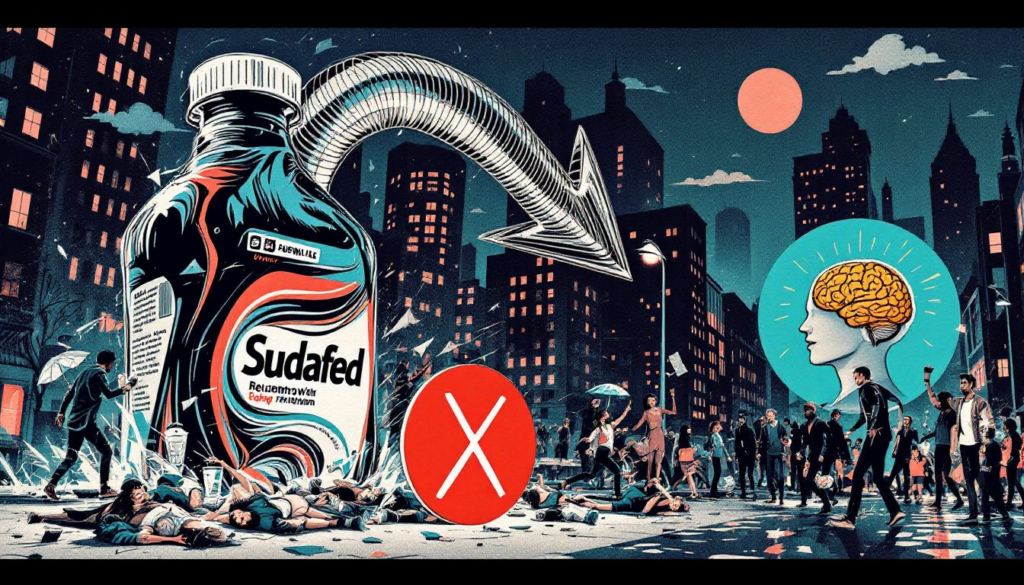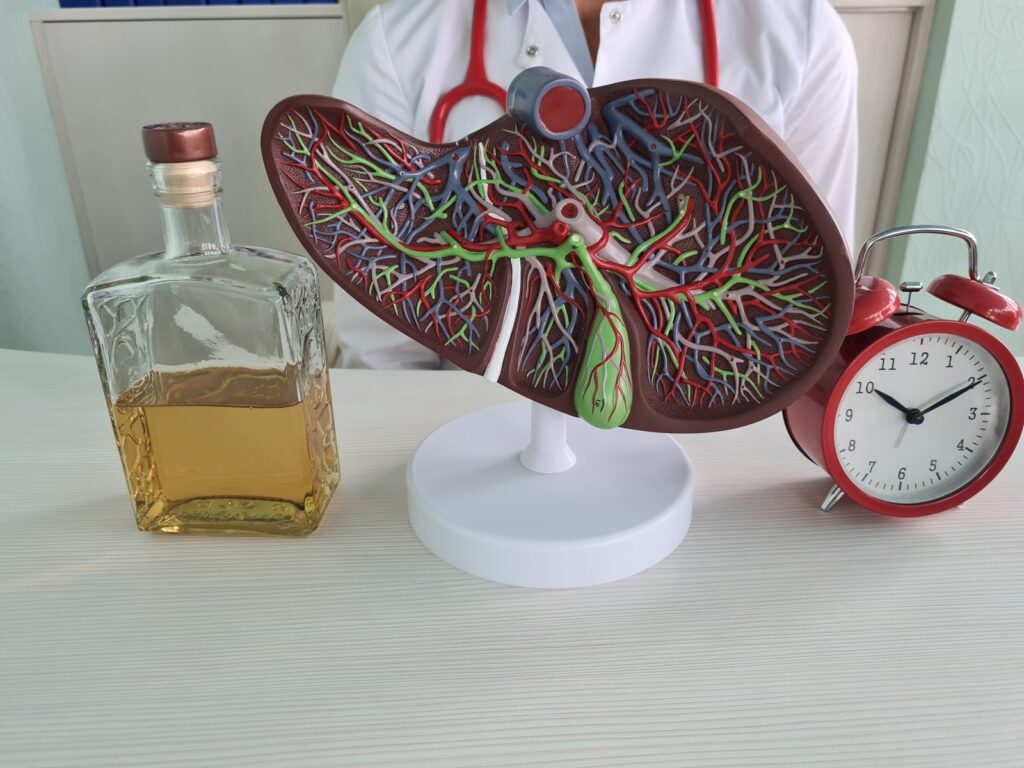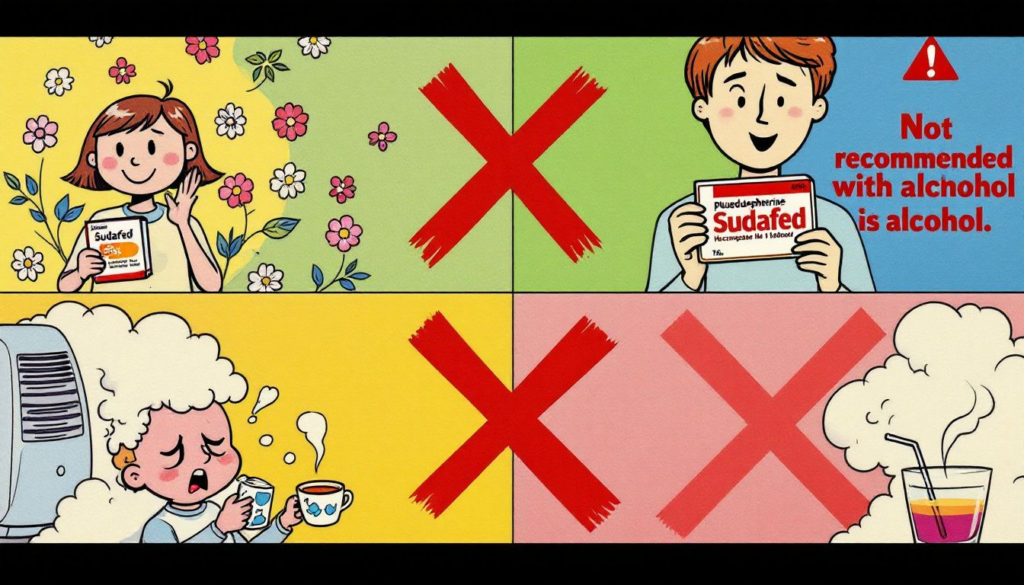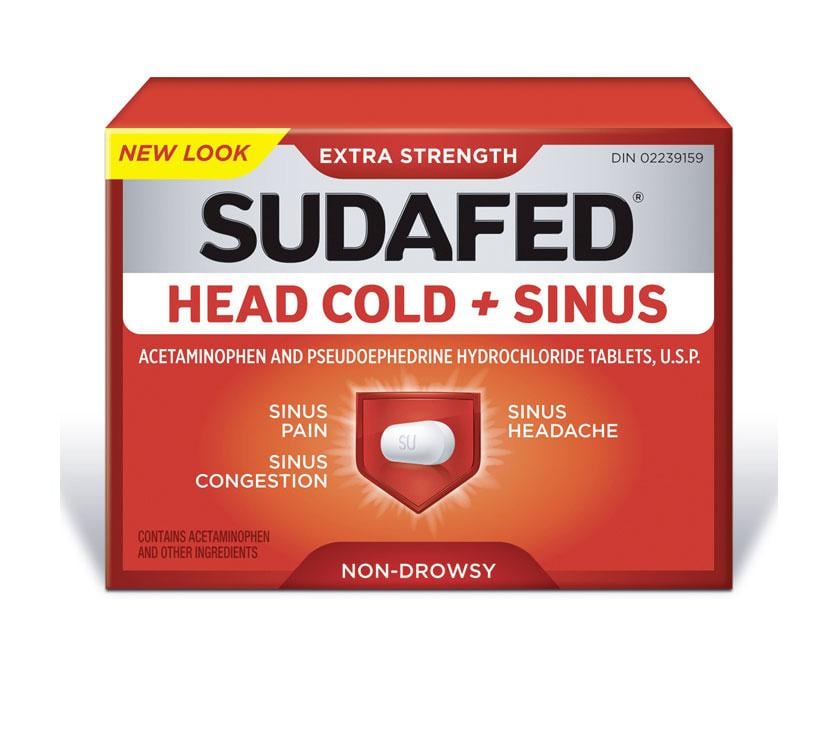Wondering if it’s safe to mix Sudafed and alcohol? You’re not alone. Many people have this concern. Combining these substances can lead to serious health risks, including increased blood pressure, impaired judgment, and more. This article explains why mixing Sudafed and alcohol is not a good idea and what you should know before mixing them.
Key Takeaways
- Combining Sudafed and alcohol can lead to adverse reactions, including increased heart rate, dizziness, and impaired judgment, making this mix particularly dangerous.
- Sudafed can mask the effects of alcohol, potentially leading to overconsumption and a higher risk of alcohol poisoning and related health issues.
- Consulting a healthcare provider before mixing Sudafed with alcohol is essential to ensure safety and address potential interactions with other medications.
Understanding Sudafed and Alcohol

Pseudoephedrine, commonly known as Sudafed, is frequently utilized to relieve nasal congestion. It achieves this by causing the blood vessels in the nasal passageways to narrow, which diminishes swelling and facilitates easier respiration. Conversely, alcohol acts as a depressant on the central nervous system. It not only impairs cognitive functions, but also compromises immune system strength, hampering the body’s ability to combat infections.
The interaction between Sudafed and alcohol can be complex due to various elements that may influence their combined effects. Using these substances simultaneously could result in negative side effects. Individuals taking Sudafed—particularly for treating infections—should consider abstaining from alcohol consumption entirely. Recognizing how each substance separately impacts bodily functions is essential for understanding why mixing them can be risky.
Can You Mix Sudafed and Alcohol?
It is strongly advised against combining Sudafed with alcohol due to the array of possible interactions and negative effects. The effectiveness of Sudafed in easing nasal congestion could be diminished by alcohol intake, thereby rendering the medication less beneficial. This situation can cause concern if you are dependent on Sudafed to help manage uncomfortable symptoms.
Using both Sudafed and alcohol simultaneously may result in various adverse reactions such as heightened anxiety, lightheadedness, blurred vision, and a faster heartbeat. These effects can considerably disrupt your day-to-day functioning and overall well-being. In more extreme scenarios, fiddling with this mix might lead to even worse complications like an amplified risk for hangovers or injuries as well as susceptibility to alcohol poisoning.
Another alarming issue when blending these substances is that Sudafed has the potential to obscure how drunk one feels. Consequently, there’s a chance you won’t perceive yourself as drunk as you truly are. This misperception might contribute to greater consumption of alcoholic drinks leading up potentially dangerous intoxication levels. Habitual use of both substances together may signal a serious problem related to excessive drinking, which demands immediate attention for safety’s sake.
Health Risks of Mixing Sudafed and Alcohol

Merging the use of Sudafed with alcohol can precipitate a variety of serious health hazards. The potentiation of side effects such as elevated blood pressure and heart rate is among the primary concerns, posing particular threats to those with existing health issues. Due to its stimulant properties, when Sudafed is mixed with the depressive effects of alcohol, it creates an unstable combination that could overburden the cardiovascular system.
There’s also a substantial risk regarding cognitive function and physical coordination. When combined, Sudafed’s stimulating effects alongside alcohol-induced impairment might lead to confusion, lethargy, and impaired decision-making ability – all culminating in greater risks for accidents and injuries during activities demanding focus and dexterity.
Combining soda with alcohol may obscure how intoxicated you actually are by masking signs associated with being drunk. Consequently, this misjudgment can result in drinking more than intended, which dramatically raises dangers like experiencing life-threatening scenarios akin to alcohol poisoning, highlighting yet another aspect where mixing these substances leads not only to increased blood pressure but potentially fatal repercussions as well due to amplified chances for hazardous incidents or critical cardiac complications.
Increased Blood Pressure and Heart Rate
Pseudoephedrine, an active ingredient in Sudafed, is associated with raising blood pressure. Combining Sudafed with alcohol significantly amplifies the likelihood of heightened blood pressure, which poses a substantial risk for those who already suffer from high blood pressure and could potentially worsen their condition.
The stimulant properties of Sudafed also accelerate heart rate and increase body temperature. Should you encounter a swift elevation in your heartbeat following the concurrent use of these substances, it’s essential to promptly obtain medical care due to concerns over elevated blood pressure.
It’s advisable to be vigilant regarding any abnormal symptoms that may arise and cease consumption of both substances immediately should such issues manifest so as to avert serious health risks.
Impaired Judgment and Coordination
Combining Sudafed with alcohol can substantially compromise your motor skills and responsiveness. This heightened impairment escalates the likelihood of mishaps and harm, rendering routine tasks such as driving or handling heavy equipment hazardous. This mix can induce sleepiness and cloud judgment, exacerbating these dangers.
The fallout from compromised decision-making abilities and coordination is grave. The potential for personal injury looms large, along with endangering those in proximity to you. Engaging in common activities at home or within communal spaces becomes increasingly dangerous due to a marked uptick in the chance of sustaining alcohol-related injuries when mixing Sudafed with alcoholic beverages.
Masking Symptoms of Intoxication
Combining Sudafed with alcohol may obscure the signs of inebriation, prompting an individual to inadvertently drink excessively. The numbing effect of Sudafed on one’s reaction to alcohol could contribute to heavy consumption and elevate the chances of grave intoxication, possibly culminating in alcohol poisoning.
This concealing impact by Sudafed can result in a deceptive perception of sobriety, causing a person to persistently consume more alcohol without recognizing the mounting hazard this poses. It is vital for individuals who mix these substances to acknowledge this risk, thus averting excessive drinking that might lead to dire health outcomes.
Interaction With Other Medications
When you take Sudafed along with other medications, there can be a range of harmful interactions or diminished effectiveness in the treatments you’re using. These risks are elevated for seniors or individuals who consume Sudafed and have compromised liver or kidney function, as they may experience increased sensitivity to these detrimental combinations.
Interactions between Sudafed and certain drugs like alpha-blockers can compromise their efficacy. Hence, it is vital to seek guidance from a healthcare professional if you have any underlying health issues or are concurrently on additional medicines before deciding to use Sudafed.
Considering your complete medical background, present conditions, and ongoing medication regimen is part of what healthcare providers do when determining whether combining Sudafed with alcohol is safe for you.
Monoamine Oxidase Inhibitors (MAOIs)
Individuals who are currently under treatment with monoamine oxidase inhibitors (MAOIs), which are prescribed for disorders including depression, Parkinson’s disease, and as relaxants, should refrain from taking Sudafed. This is due to the potential of experiencing severe hypertension when these two drugs interact. Since MAOIs can remain in your body for an extended period after usage cessation, it’s essential to allow a minimum gap of two weeks before initiating any Sudafed regimen.
It is imperative to understand that mixing Sudafed with MAOIs could result in critical side effects that might be life-threatening. Those who have just concluded their course of MAOI treatments must wait the recommended duration prior to consuming Sudafed so as to preclude serious adverse reactions. For guidance tailored specifically to your health situation, always seek the expertise of a medical professional before proceeding with new medications.
Tricyclic Antidepressants
Merging the use of Sudafed with tricyclic antidepressants can lead to serious health issues. This mix has the potential to intensify side effects such as tiredness and complications related to cardiac rhythm. The synergistic reaction between these two drugs may escalate adverse effects, marking it as a hazardous pairing.
Should you be taking tricyclic antidepressants, it is crucial to consult your healthcare provider about other options for alleviating nasal congestion. By doing so, you can reduce the associated risks and safeguard your well-being while addressing your condition.
Sleep Medications and Other Stimulants
Mixing Sudafed, which has stimulant properties, with sleep aids can negate the tranquilizing effects that are essential for those who need them to combat conditions like insomnia or other sleep-related issues. This interaction could exacerbate sleeping problems as it makes it more challenging to achieve a state of deep sleep.
When combined with additional substances that possess stimulating effects, the use of Sudafed may amplify these stimulant effects and potentially cause complications. It is crucial to recognize these possible interactions and seek advice from a healthcare professional prior to concurrently taking several medications with stimulant properties.
Responsible Use of Sudafed and Alcohol

Using Sudafed and alcohol responsibly is key to minimizing health risks. Individuals should avoid taking Sudafed before bed to ensure proper rest and minimize health risks. It’s advised to wait 24 to 36 hours after taking Sudafed before consuming alcohol to allow the active compounds to clear your system.
When taking Sudafed, it’s crucial not to exceed your usual alcohol limits to prevent adverse reactions. Frequent drinking, especially while taking medications like Sudafed, may suggest an increased risk of alcohol use disorder. If you find yourself consuming alcohol while on medication, it might indicate a potential alcohol dependence issue.
Consult a Healthcare Provider
Before combining Sudafed with alcohol, it is critical to seek advice from a healthcare professional for safe use and to prevent potential health risks. Healthcare professionals take into account one’s medical history and any ongoing medications before recommending the co-use of Sudafed with alcoholic beverages. Consulting a doctor is imperative if you have concerns about adverse reactions or possible drug interactions when using nasal decongestants.
For those prescribed tricyclic antidepressants who need an alternative remedy for nasal congestion, consulting a healthcare provider can lead to safer options. If there are uncertainties regarding the appropriate timeframe between consuming Sudafed and ingesting alcohol, getting guidance from either a physician or pharmacist is important.
Time Gaps Between Consumption
It is essential to carefully schedule when you consume Sudafed and alcohol to reduce the potential hazards of mixing these substances. If you are taking extended-release forms of Sudafed, a more prolonged interval may be necessary before drinking alcohol.
Adhering to such timing recommendations can help diminish the risk of negative reactions and promote safer consumption practices for both compounds.
Monitoring Your Body’s Reaction
It’s essential to be vigilant about your body’s response when combining Sudafed with alcohol. Be on the lookout for any atypical symptoms, including a rise in blood pressure, feelings of lightheadedness, or potential allergic responses.
Should you experience any negative reactions from this mixture, discontinue use of both substances right away and consult a healthcare professional without delay. Keeping track of how your body reacts is key in averting significant health issues.
Recognizing Signs of Alcohol Addiction

It’s vital to be vigilant for indicators of alcohol addiction as it plays a critical role in preserving health. Signs indicative of an alcohol problem include solitary drinking, excessive consumption, and mixing Sudafed with alcohol while undergoing treatment. Identifying these behaviors in oneself or others might signal a deeper issue with drink alcohol tendencies.
Exorbitant drinking can precipitate grave medical issues such as cardiovascular events, liver conditions, pancreatic swelling, and diverse forms of cancer. The use of too much alcohol negatively impacts cognitive functions and cardiac health while diminishing the effectiveness of the immune system. When Sudafed is used concomitantly with alcoholic beverages, it may impair the body’s ability to fend off infection which could lead to prolonged sickness duration alongside heightened vulnerability to harm, aggressive behavior incidents and risk for developing acute intoxication from excessive consumption.
Recognizing patterns that hint at consuming too much should prompt action towards obtaining expert assistance promptly. Proactive measures are key—they hold potential not only for averting lasting detrimental effects on one’s well-being, but also contribute greatly toward enhancing life quality overall.
Alternatives to Sudafed for Treating Nasal Congestion

For those seeking different solutions to combat nasal congestion besides Sudafed, a variety of choices exist. Phenylephrine is an acknowledged substitute that can be employed for this purpose. While antihistamines may offer temporary relief from symptoms associated with nasal obstruction, their impact on clearing the actual blockage is not markedly significant.
You might consider exploring nasal sprays or turning to natural remedies in order to alleviate sinus pressure and reduce stuffiness in your nose. These options could provide effective relief while presenting lower risks if consumed alongside alcohol.
It’s crucial to engage with a medical professional when determining the most appropriate approach for addressing your cold and flu symptoms.
Summary
In summary, mixing Sudafed and alcohol can lead to a range of serious health risks, including increased blood pressure, impaired judgment, and the masking of intoxication symptoms. It’s essential to understand these risks and use both substances responsibly. Consulting a healthcare provider and monitoring your body’s reactions can help you avoid adverse effects.
By being aware of the dangers and taking appropriate precautions, you can ensure your health and safety. Remember, there are always safer alternatives for treating nasal congestion that do not carry the same risks when combined with alcohol. Stay informed and make wise choices for your wellbeing.
Frequently Asked Questions
Can I drink alcohol if I took Sudafed hours ago?
For safety, it is recommended to allow 24 to 36 hours to pass after taking Sudafed prior to consuming alcohol in order to reduce health hazards.
What should I do if I accidentally mix Sudafed and alcohol?
If you accidentally mix Sudafed and alcohol, stay calm and monitor for symptoms like increased blood pressure or dizziness.
Seek medical attention if you experience any worsening symptoms.
Are there safer alternatives to Sudafed for nasal congestion?
Yes, alternatives like phenylephrine and antihistamines can effectively relieve nasal congestion.
It’s essential to consult a healthcare provider to choose the safest option for your needs.
How do I know if I have an alcohol addiction?
It may be a sign of an addiction to alcohol if you frequently consume it in excess, alone or together with medication.
Acknowledging such habits is vital for confronting a possible problem related to alcohol.
Can Sudafed interact with other medications I am taking?
Certainly, Sudafed may have interactions with drugs such as MAOIs and tricyclic antidepressants, which can lead to harmful effects.
It is essential to speak with your healthcare professional before mixing it with any other medications.

Mitchell Grant Cohen
Dr. Mitchell G. Cohen is a board-certified Internal Medicine specialist with over 34 years of experience in patient-centered healthcare. A graduate of Hahnemann University School of Medicine, Dr. Cohen completed his internship at the University Health Center of Pittsburgh, where he gained invaluable hands-on experience. He is also a certified addiction specialist, holding membership with the American Society of Addiction Medicine (ASAM).
Currently based in Nashua, NH, Dr. Cohen is affiliated with Saint Joseph Hospital, where he provides comprehensive care focusing on both internal medicine and addiction treatment. His expertise includes prevention, diagnosis, and management of adult diseases, as well as specialized care for individuals facing substance use disorders.
Dr. Cohen is committed to fostering open communication, ensuring his patients are fully informed and empowered to make confident decisions about their health and treatment options.





